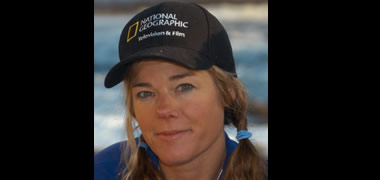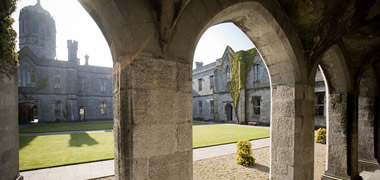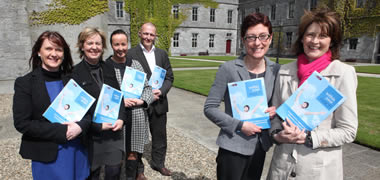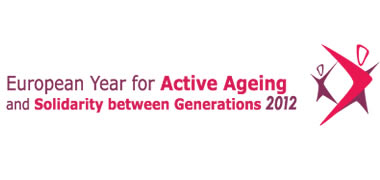-
Courses

Courses
Choosing a course is one of the most important decisions you'll ever make! View our courses and see what our students and lecturers have to say about the courses you are interested in at the links below.
-
University Life

University Life
Each year more than 4,000 choose University of Galway as their University of choice. Find out what life at University of Galway is all about here.
-
About University of Galway

About University of Galway
Since 1845, University of Galway has been sharing the highest quality teaching and research with Ireland and the world. Find out what makes our University so special – from our distinguished history to the latest news and campus developments.
-
Colleges & Schools

Colleges & Schools
University of Galway has earned international recognition as a research-led university with a commitment to top quality teaching across a range of key areas of expertise.
-
Research & Innovation

Research & Innovation
University of Galway’s vibrant research community take on some of the most pressing challenges of our times.
-
Business & Industry

Guiding Breakthrough Research at University of Galway
We explore and facilitate commercial opportunities for the research community at University of Galway, as well as facilitating industry partnership.
-
Alumni & Friends

Alumni & Friends
There are 128,000 University of Galway alumni worldwide. Stay connected to your alumni community! Join our social networks and update your details online.
-
Community Engagement

Community Engagement
At University of Galway, we believe that the best learning takes place when you apply what you learn in a real world context. That's why many of our courses include work placements or community projects.
2012
All 2012
Renowned American Marine Biologist to Speak at NUI Galway’s Ryan Institute

Monday, 23 April 2012
Marine Biologist conservationist, media producer and National Geographic Emerging Explorer, Dr Tierney Thys, will speak at NUI Galway’s Ryan Institute on Thursday, 26 April at 1 pm, as part of the US Embassy’s Science Programme. After receiving her PhD studying fish biomechanics, Dr Thys became enthralled with the power of film to teach science and convey conservation messages, and spent more than ten years making films for National Geographic Television. Leading and serving as an expert on numerous expeditions around the world from Alaska to Antarctica, Bali to Baja, Taiwan to South Africa, she is also the Founder of the Adopt a Sunfish Project, dedicated to researching and conserving the giant ocean sunfishes. Dr Thys’ work has been featured in numerous documentaries by National Geographic, NHK, BBC and German Television. Professor Mark Johnson, Deputy Director of the Ryan Institute and Leader of the Institute’s Biodiversity and Bioresources Research Cluster, said: “In the context of the demands and pressures on marine ecosystems, understanding marine biodiversity is now more important than ever. In fact, right at this moment several of the Ryan Institute’s marine scientists are in the North Atlantic on a research cruise to describe the ecosystems of the continental margin (200 – 4000m deep). We are seeking to balance the potential economic benefits of prospecting for new drugs with the need to conserve our natural resources. Dr Thys is a scientist and communicator, committed to understanding and conserving the marine environment. She was a part of the global network working on the Census of Marine Life and has carried out fascinating work on the mysterious ocean sunfish. To hear from her about her research and experiences is a great opportunity for anyone working in, or interested in, the marine environment.” Dr Thys will give a short talk on her work for the Global Census of Marine Life, with a particular focus on the modern technologies for tagging and tracking marine wildlife such as the giant ocean sunfish. The talk will be followed by a Q&A session. All are welcome to this free event which will take place in the Martin Ryan Annex Lecture Theatre. For more information please contact sarah.knight@nuigalway.ie. -ENDS-
>> Read full story about Renowned American Marine Biologist to Speak at NUI Galway’s Ryan Institute
NUI Galway Career Information Evening for Students Interested in Studying Arts and Engineering

Monday, 23 April 2012
Future career routes is the focus of a careers evening for Leaving Certificate students, parents and guardians, in the new Engineering Building at NUI Galway on Wednesday, 9 May at 6pm. On completion of the Bachelor of Arts, a high proportion of NUI Galway graduates choose to specialise in a variety of professions by a doing a one-year Masters degree. Many of the University’s Arts graduates have gone on to careers in areas such as Business, Journalism, Social Work, Computer Science, Education and Law. John Hannon, Head of the Career Development Centre at NUI Galway, said: “In the current economic environment, one of the key attractions of studying Arts is the opportunity for students to choose their own unique combination of subjects, allowing them build a foundation for their future career, without limiting themselves to a particular field. Students can choose to continue studying subjects they enjoyed at school and/or take on new subject areas such as psychology, archaeology or economics. This a great opportunity for students and parents to get a better understanding of the career options possible from different degree programmes and to hear directly from graduates who are working in different industries.” Leaving Certificate students studying STEM subjects (science, technology, engineering and maths) in secondary school would especially have an interest in the Engineering section of the career evening. The evening will include presentations from the Dean of Engineering and Informatics, Professor Gerry Lyons, who will explore opportunities for future NUI Galway Engineering students. Industry representatives will also be on hand to direct students on how a Bachelor of Engineering (BEng) from NUI Galway is the qualification to get you that job post-graduation. Professor Gerry Lyons, Dean of Engineering and Informatics, said: “Engineering affects almost everything we do in modern society. From the phones and automobiles we use to the medical devices and treatment methods we depend on and graduates with STEM qualifications are highly valued by employers across the world. A degree in Engineering or IT is a platform for career development in areas as diverse as Consulting, Management, Design, Creative Industries and Finance. It provides a professional recognised qualification and the flexibility to pursue many different career opportunities. This free event will give interested students an opportunity to learn about career opportunities in the field of engineering.” The career evening will feature a number of NUI Galway Arts and Engineering graduates giving an overview of their career path since graduating. They will also talk about how skills and knowledge gained in their degree programmes has benefited them in their careers. There will also be a Q&A session at the end of the evening and an opportunity to speak to staff and graduates on a one-to-one basis over refreshments. Visitors can just turn up on the night, arriving at the new Engineering Building for 6pm. There is no need to register in advance for this free event. For more information call 091 482814 or 495788. ENDS
>> Read full story about NUI Galway Career Information Evening for Students Interested in Studying Arts and Engineering
Brain Freeze Find Might Help Solve Migraine Mysteries

Monday, 23 April 2012
Scientists have explained why eating ice cream too quickly can cause a painful headache, commonly known as brain freeze. It is hoped the discovery can be used to develop new treatments for migraine. In experiments carried by researchers at Harvard Medical School and NUI Galway, a team of 13 healthy volunteers deliberately induced the brain freeze so the headache effects associated with it could be studied. It was found that the headache pain was brought on by a rapid increase in blood flow through a major blood vessel in the brain, the anterior cerebral artery. The ache subsided again once blood flow was restricted. The experimental work, led by Professor Jorge Serrador and carried out at the Cardiovascular Electronics Laboratory in the School of Engineering & Informatics at NUI Galway, enabled brain blood flow to be measured during the controlled onset and offset of a headache. The controlled ‘production’ of a headache was achieved by the volunteers drinking iced water. Using this technique, the researchers were able to study a headache from beginning to end, without the need for drugs that would mask the causes and symptoms of the pain. The volunteers drank iced water through a straw that was pressed against their palate and then followed by drinking water at room temperature. Blood flow in the brain was monitored using a hand held device. It was found that the anterior cerebral artery dilated rapidly and flooded the brain with blood when the volunteers felt the painful headache, soon after this dilation occurred, the same vessel constricted reducing blood flow, corresponding to the volunteers’ pain receding. The findings were presented at the meeting Experimental Biology 2012 in San Diego yesterday (Sunday, 22 April, 2012). Presenting the findings, lead-author Professor Jorge Serrador, Adjunct Professor of Cardiovascular Electronics at NUI Galway, and also of the Harvard Medical School and the War Related Illness and Injury Study Centre of the Veterans Affairs New Jersey Health Care System, said: “The brain is fairly sensitive to temperature, so vasodilatation might be moving warm blood inside tissue to make sure the brain stays warm.”Dr Serrador explained that because the skull is a closed structure, the sudden influx of blood could raise pressure and induce pain. By constricting the blood vessel again the body could be acting to reduce the pressure before it reaches dangerous levels. Similar alterations in blood flow could be at work in migraines, post traumatic headaches, and other headache types.If further research confirms these suspicions, then finding ways to control blood flow could offer new treatments for these conditions. Drugs that block sudden vasodilatation or target channels involved specifically in the vasodilatation of headaches could be one way of changing headaches’ course. -ENDS-
>> Read full story about Brain Freeze Find Might Help Solve Migraine Mysteries
Reach New Heights with a Part-time Programme at NUI Galway

Monday, 23 April 2012
NUI Galway’s Adult and Continuing Education Office will hold an information evening for students interested in broadening their horizons or defining a new career path. With a wide range of part-time study opportunities available, all of the programmes offer flexible study routes and accreditation at certificate and diploma level, while a large number of programmes are now available to degree and masters level. The information evening will take place on Thursday, 3May from 6pm in the Orbsen Building at NUI Galway. Degree courses on offer, beginning in September 2012, include: Bachelor of Commerce; Bachelor of Arts in Community and Family Studies; Bachelor of Science; Bachelor of Arts in Training and Education; and a Bachelor of Arts with specialist combinations in History, English, French and Sociological and Political Studies. One of the newer part-time courses on offer at the University is the Bachelor of Arts in Early Childhood Studies and Practice, which focuses on the training needs of childcare practitioners and provides a formal professional education programme for workers in this sector. Nuala McGuinn, Acting Director of NUI Galway’s Adult and Continuing Education, said: “Courses on offer are delivered either by classroom-based teaching mode or through blended and online learning, offering flexibility and choice to students. For those not necessarily interested in pursuing a course to degree level, there is also a range of two-year diploma programmes available.” Diploma programmes include Business, Science and Technology Studies, Social Gerontology (the study of ageing), Psychology of Counselling and programmes in the area of Scientific Studies such as Geology. Diploma options are also available in traditional subjects such as French, German, Italian, English Literature, Gaeilge, Spanish, History and Archaeology. These two-year programmes offer students an opportunity to up-skill in an area of personal and professional interest over a manageable timeframe and require attendance at class on one evening per week. With a focus on employability and the emerging skills needs of the workplace, a range of one-year diplomas are also available, such as Medical Device Science, Lean and Quality Systems, Innovation Management, Software Engineering, International Business and many others. These programmes are designed with adaptability in mind, are offered via blended learning and allow students to fit study around their busy working lives. They are equally suitable for students who are actively seeking employment, but require a part-time programme which allows them to combine study and job seeking in a flexible manner. For further details and closing dates for application contact the Adult & Continuing Education Office on 091 492062 or visit www.nuigalway.ie/adulteducation. -ENDS-
>> Read full story about Reach New Heights with a Part-time Programme at NUI Galway
Changing Generations Seminar in NUI Galway

Tuesday, 24 April 2012
‘What can my generation contribute to the future of Ireland?’ The key question arising from the European Year for Active Ageing and Solidarity between Generations 2012 Family is a central, and in some cases, the most important shock absorber for those affected by the recession according to findings from a new research study entitled Changing Generations. Interest group members from throughout Ireland gathered in Galway today to attend the Changing Generations seminar to discuss how solidarity between generations helps in coping with and overcoming the recession. Facilitated by Dr Gemma Carney, NUI Galway and Dr Catherine Conlon, Trinity College Dublin, the event brings to the public domain insights from interviews with 100 ordinary people, from all walks of life and every age group. This two-year study highlights that: - There is strong solidarity between the younger and the older generations in Irish society. Older research participants advocate enhanced supports for younger people, especially educational investment into children from disadvantaged backgrounds and better access to health care for families. Younger participants are strongly supportive of maintaining or even enhancing supports for older people. - Family is a central, and in some cases the most important, shock absorber for those affected by the recession. For instance, the project data gives insights into practices of 'quick loans' between family members. Three-generational households and adult children moving back into parental homes also feature in project data. Those without a family network find imagining a positive future for themselves more difficult. - There is widespread distrust in the ability of Irish policy-makers to rectify unfairness in how resources are currently allocated. There is a widely shared perception that 'insiders' and politicians are out-of-touch with the lives of ordinary people in Ireland. An informed public discussion on the importance of solidarity between the generations to the future of Ireland is long overdue. This event offers citizens from all walks of life and of all ages an opportunity to engage with a positive programme of work for Ireland’s future. Leading expert Professor Virpi Timonen, Director of the Social Policy and Ageing Research Centre at Trinity College Dublin, commented: “This event is of great importance in initiating a future-oriented discussion on what sustains us in this deep recession, and what will get us out of it. For most people, family is the central resource that helps them to cope. This is a strength of Irish society, but it also places people in very different positions as some families are under huge pressure, while others are better resourced to give support in the form of time, advice and money. This reliance on the family is therefore also a source of inequality in Irish society”. The project data corroborates and gives in-depth illustration of many of the findings from the Irish Longitudinal Study on Ageing (TILDA), which has provided evidence on extensive exchanges of help and support between older and younger family members in Ireland. The Changing Generations research project is part of an increasingly important area of scientific research that explores relations between Ireland’s generations. Designed as a longitudinal study, the research aims to build the evidence base necessary to inform public opinion on solidarity between the generations. Professor Tom Scharf of NUI Galway is an expert on ageing and the social policy of later life. His work takes a life-course perspective, which calls on policy-makers to start planning now for the future needs of children born today, and to consider the past experiences of older people when legislating for today’s ageing populations. “The preliminary findings from this research show that we need to start thinking about how policy can be developed with inter-generational transfers in mind, taking account of the role of family and community in providing social protection throughout our lives” said Professor Scharf. As part of our commitment to raise public awareness around solidarity between generations, the Changing Generations research team has invited all members of Irish society with a stake in its future to take part in a citizen deliberation in NUI Galway today (Tuesday, 24 April). Participants include Youthwork Ireland, National Youth Council of Ireland, Active Retirement Ireland, Living Scenes intergenerational project, Irish Senior Citizens Parliament and many others who are not representing any organisation but who wish to take part in this important discussion. The guest speaker is Vicki Titterington, from the Beth Johnson Foundation, UK-based organisation that has been leading the way in promoting intergenerational practice for forty years (http://www.bjf.org.uk/). Vicki runs the Linking Generations project in Northern Ireland and will speak about the importance of intergenerational work before the deliberations begin. The event will take place in the Aula Maxima, NUI Galway, between 12pm and 4pm. The event is free. Registration is open from 11.30am when a light lunch will be served. To find out more about the Changing Generations event log onto http://www.sparc.tcd.ie/generations/ ENDS
>> Read full story about Changing Generations Seminar in NUI Galway















